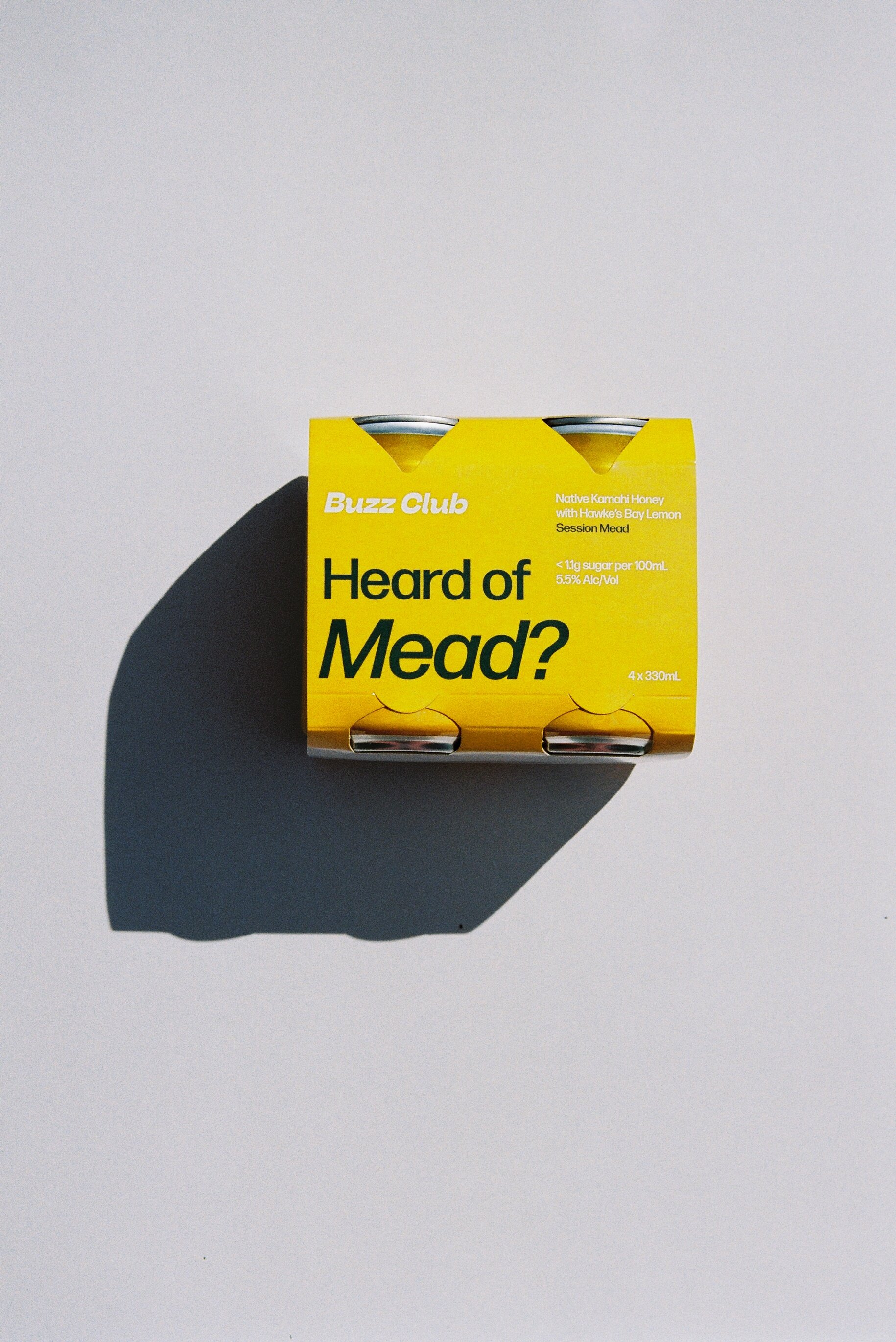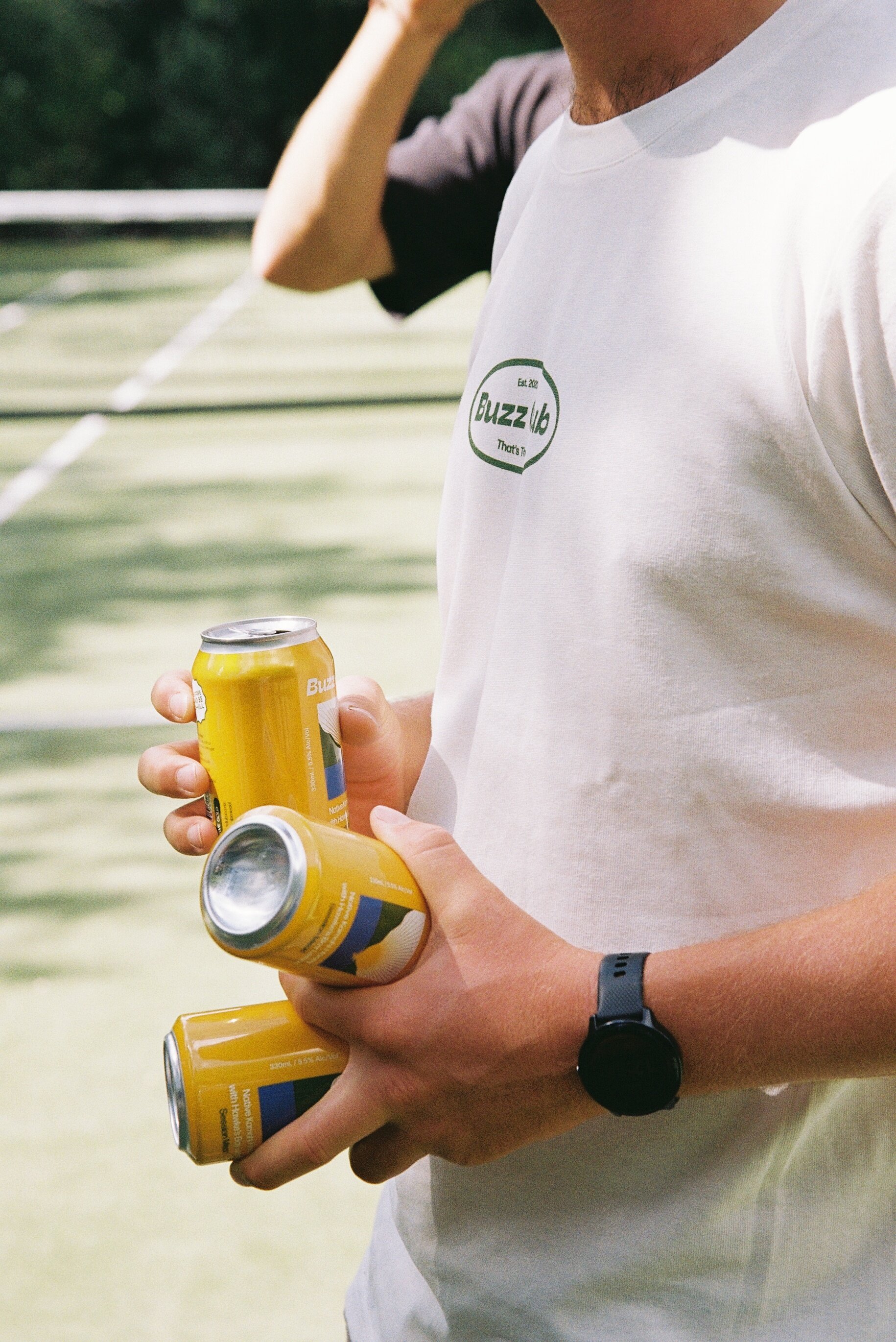Buzz Club: why mead will be your next bevvy
Words by Hannah Powell. Images taken by Isabella Griffiths.
Meet Edward and Wilbur, two twenty-somethings with their own business, Buzz Club. Brewing mead to sell in snazzy 330mL cans, these guys are onto something great. Yo Vocal caught up with the two to learn all about it.
“It’s called Buzz Club, and we sell mead – an alcohol made by honey,” they explain. Traditionally sweet, heavy, and still, mead can also be known as honey wine. An alcoholic beverage made by fermenting honey, meaderies have been around for centuries. Seeing a gap in the market and a niche for mead, Edward and Wilbur decided to modernise the ancient drink. They revamped it to be carbonated, 5.5 ABV, and low sugar.
Edward, 23, and Wilbur, 22, were recent graduates of university when the idea came about. Wilbur, a beekeeper during university, came across the idea early on and sat on it for eighteen months. “The more I learned about it, the more I realised it was one of the quickest growing alcohol markets in the world,” he said. When he popped his shoulder out and landed on the couch for three weeks, he started watching how to brew. Meeting Edward at a party a few weeks later by tapping him on the shoulder and asking if he liked mead, Wilbur quickly found he was the perfect match. They’ve been non-stop ever since.
It began as brewing traditional mead in Wilbur’s parent’s shed out in Darfield. Concluding that the traditional method wasn’t their style, they went back to the drawing board in an effort to switch it up. A part of the Te Ōhaka start-up programme in Christchurch, they spent their first eight months creating something for today’s market, tailoring it to what the market wanted while keeping the tradition of mead alive.
Edward and Wilbur take a breath. “Yeah, that’s been the last fourteen months of our lives,” they laugh. With Edward on marketing, Wilbur on production and both on sales, the two are hard-working, committed, and full of ideas for Buzz Club’s future. With the last twelve months being hands-on, they both agree it was a relief going into it as mates. “I think we both didn’t understand what we had to do at the start, so it was good to have someone else to rely on,” Wilbur says.
Their first product was single 330mL cans, released mid-December last year. Just recently, they released a Buzz Club four-pack of the golden beauties. Available across Christchurch, Wellington, and Blenheim, the boys hope to stock it across the rest of New Zealand soon.
The process of brewing mead, Edward and Wilbur explain, is simple at its core. “It’s fermentation – similar to making a beer or a wine,” Wilbur explains. When fermenting the sugars to make alcohol, the natural honey taste remains a big part of the whole picture. Buzz Club pairs it with natural fruits, with their current mead brewed with lemons from Hawkes Bay. With four to five new flavours in the works, the boys are big on using local produce. Using native kāmahi honey in their first one, they focus on using only native honey in their mead. “[We’re] trying to show it’s not just manuka that New Zealand has to offer,” they say.
“As a beekeeper, I saw first-hand beekeepers producing great native honey other than manuka, and you get paid, say, five dollars [when] it’s costing you seven dollars [to produce],” Wilbur says. “One of our huge aims is to gain recognition for native honey outside of manuka again”.
Self-described as just two guys giving it a go, Buzz Club wants to show the world that honey can be used in a different way. “Ours is an innovative product, but I hope it creates innovation in the area to help the sustainability of the industry,” Edward says. “The way we make our product is trying to bring it back into the mainstream, to revitalise mead and the apiculture industry,” Wilbur adds. “Not trying to make it so modern it loses its touch, but creating something that’s easily accessible, easily produced, and easily consumed”.





